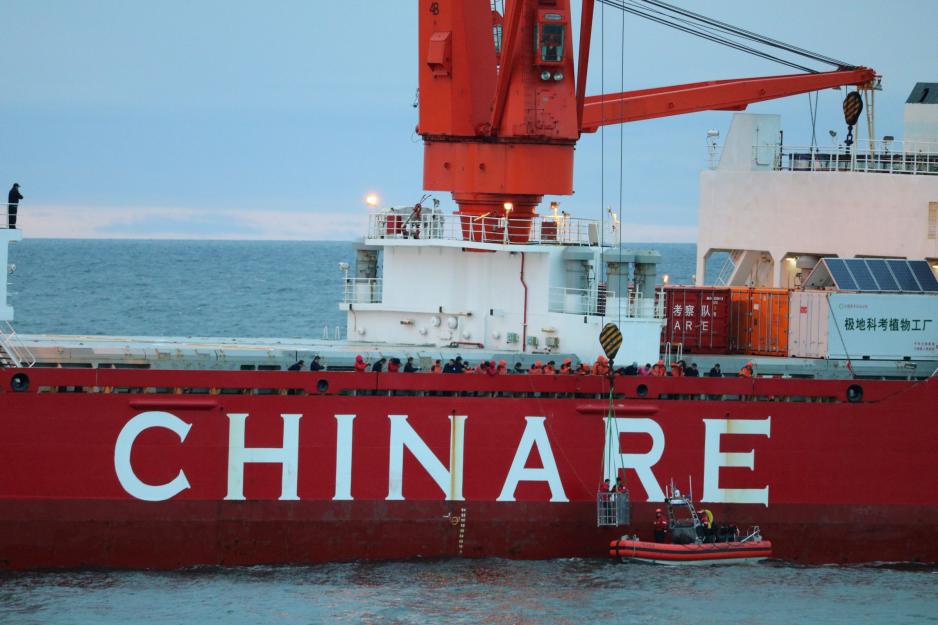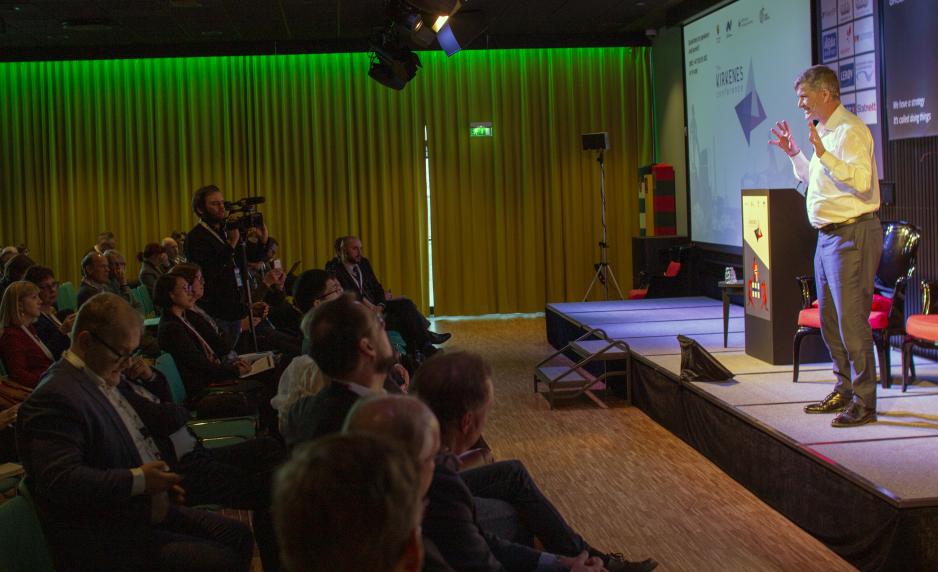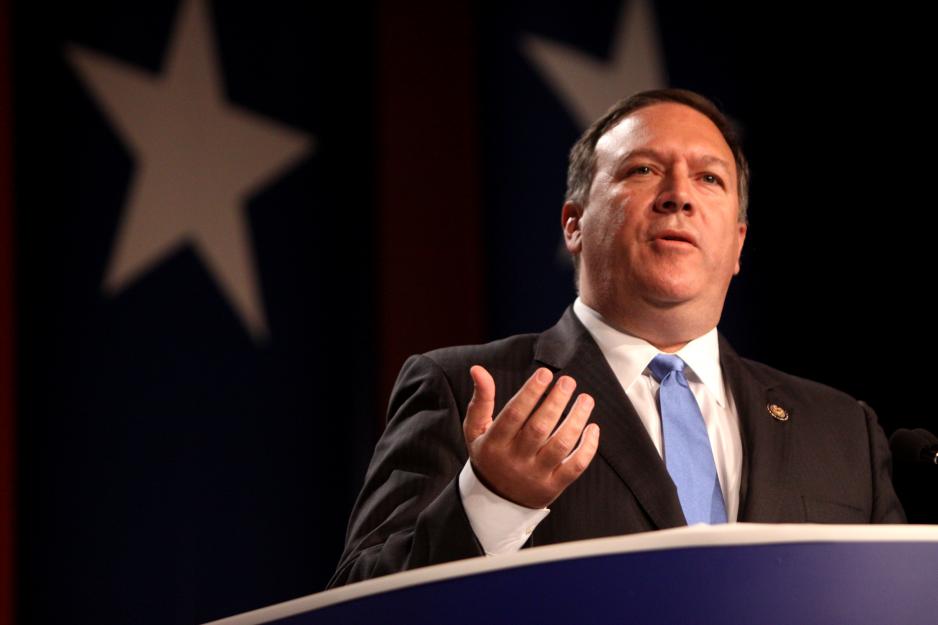Erik Solheim: - The West Interprets Everything from China in the Worst Meaning Possible

The American coast guard evacuates a crew member from the Chinese research vessel Xue Long off the coast of Nome, Alaska in September 2017. Photo: U.S. Coast Guard
Former Norwegian Minister of Environment Erik Solheim argues that the Foreign Intelligence Service’s threat assessment of China reeks to much of US influence. He argues that the West should welcome China to the Arctic and also warns against a world order in which one has to choose between China and the USA.
“We should welcome China to the Arctic. We should cooperate with them, draw more Chinese investments and cooperate with them about making the right environmental decisions. But we should of course not be naïve”, says Erik Solheim.
He just finished a 20-minute speech about China’s ambitions and thoughts about the Arctic during the Kirkenes conference.
Solheim, who had to leave his position as Environment and Development Minister of the Norwegian Stoltenberg 2 government in 2012 and leave his role as head of the UN Environmental Program in 2018, is now back on the international arena. Working for the organization World Resources Institute, he works closely with a.o. Chinese environmental authorities to move investments from coal to sun and wind power.
Solheim summarizes China’s ambitions for the Arctic like this:
“China is not an Arctic power in the same way as Russia. 60 percent of the Arctic is Russia. president Vladimir Putin thinks about the Arctic every day. President Xi Jinping does not rise in the morning to think about the Arctic. To him, the South China Sea, Africa and the Middle East are far more important. However, China is everywhere around the globe today, in the same way as the USA is. There is not one place on earth where you do not see the US’ footprint. That goes for China too. They are de facto everywhere”, Solheim says.
You can appear as an expert on China in Norwegian media without knowing the name of one single Chinese province.

Erik Solheim during the Kirkenes Conference 2020. Photo: Amund Trellevik
“Many overly confident statements”
Solheim says that China, like many other countries, regards the amount of climate changes in the Arctic with fear. That is one out of a number of reasons why the country is interested in engaging more in the region, Solheim argues.
“China is very concerned with climate change and sees the Arctic as a place in which this is clearly expressed. And China is interested in natural resources, like everyone else, with minerals and fish. We should not forget that the economic progress in China has taken place in a country with very limited natural resources; China’s progress comes from hard work and using heads and hands, not necessarily from natural resources.”
Why do you think China’s involvement and arrival in the Arctic is considered a threat to the other Arctic states?
“I think that is about people not knowing China and Chinese history. Chinese culture is very strong. Most Chinese do not speak any language but their own. Chinese like to eat Chinese food, see Chinese culture and be together when abroad, exactly because China is a great nation used to being on its own. There are cultural differences that we have to overcome. We must learn to respect one another”, Solheim says and adds:
“And then there are people who speak convincingly about China without really having a clue about China. No-one is taken seriously as an expert on the USA if they do not know the difference between California and New York. However, you can appear as an expert on China in Norwegian media without knowing the name of one single Chinese province.”
Is this fear about ignorance, then?
“Yes, ignorance, but also about the fact that China is new. Its economy has multiplied by ten since year 2000. One did not think of China in any context back then. 20 years ago, China was still a very poor country. Wherever people meet; be it in the bush in Africa, on Latin American cafés or here in Kirkenes, people talk about China. It is new, and the new and unknown is always a bit uncertain.”
Of course, the Head of the Foreign Intelligence Services must be able to talk with the Chinese in the same way he talks with Russians and Americans.

US Secretary of State Mike Pompeo during the Arctic Council Ministerial Meeting in Rovaniemi in 2019. Photo: Gage Skidmore
How do you read USA Secretary of State Mike Pompeo’s speech during the Arctic Council Ministerial Meeting in Rovaniemi, where he attacked China’s ambitions in the Arctic head-on?
“What is important for Norway to stand up against, is the idea that the world has to choose between the USA or China. What Mike Pompeo said in Rovaniemi was the same message that National Security Advisor John Bolton said to leaders on the African continent; Please choose between China or the USA. Nobody wants that. All leaders in Africa as well as in Europe want to be allied and partners with both the USA and China, both politically, culturally and economically. So let us stand up for that. Fortunately, the world is with us on that. Do not let the Americans force us to choose between them or us in the High North”, Solheim says and adds:
“Pompeo’s speech was obviously not helpful. If Chinese leaders give similar speeches about the USA, that would not be helpful either. We need for China and the USA to cooperate, and they have so much more to cooperate about than creating conflicts. Norway, as a small country, should do everything we can to maintain our freedom to act. Very few Norwegians like Trump; nevertheless, we want close cooperation with the USA. We can disagree on parts of Chinese politics, yet we want to cooperate with China”, Solheim says.
Warnings from the Foreign Intelligence Service
The Norwegian Foreign Intelligence Service describes China and Russia as the two main threats to Norwegian interests in its open threat assessment for 2020. The report says that “Both countries have political systems with close and intended ties between politics and economy, between state and private, and between civilian and military spheres. There is extensive intrusion of intelligence and security services into all sectors of these societies”, and this situation is not a transition phase.
Both Russia and China have different regimes, yet both are moving in a more authoritarian direction. The countries also consider themselves to be in a protracted conflict with the USA and parts of the West, the FIS writes.
China’s Ambassador to Norway, Yi Xianliang, argues that the report is flawed and prejudiced. The Ambassador expresses to High North News that he wants to meet with Head of Intelligence Services Morten Haga Lunde in order for the parties to better understand eachother.
Solheim argues that the report reeks of USA and is a blueprint of US assessments.
“I am not impressed over the levels of knowledge of China in parts of the Norwegian services. This reeks too much of the USA. That is dangerous in the situation we are currently in. We have ever interest in having a close relationship with the USA, however, we also need that with Russia and China. The tendency is to interpret everything from China in the worst meaning possible. If you had interpreted everything from the USA in a similar way and exaggerated everything one did not like about the USA, one would not be able to cooperate with American authorities either.”
How should Norwegian authorities handle this report?
“We just have to continue what the Foreign Minister said last week in her speech about China; We want to stand up for a world in which we do not have to choose between China and the USA. We have to work for a world in which we cooperate with both”, Solheim says.
When asked about the Ambassador’s invite to FIS Chief Morten Haga Lunde, he says:
“Haga Lunde should accept this invitation. That is an example of how Chinese diplomacy is changing. Such an invite would be unheard of just a few years ago. Now, China is open and looking for dialogue – even with the people who criticize them. If Lunde does not accept that invite, I do not really know why he should hold the job that he has”, Solheim says and closes:
“Of course, the Head of Intelligence should be able to talk with the Chinese in the same way he speaks with Russians, Americans and everyone else.”
This article was originally published in Norwegian and has been translated by HNN's Elisabeth Bergquist.

